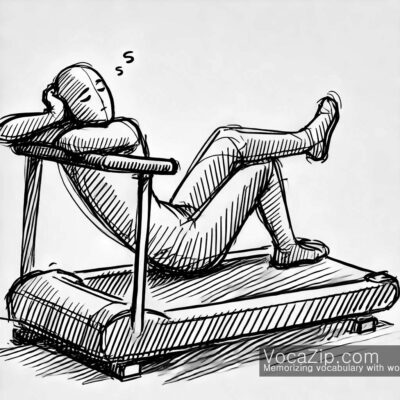quit meaning
quit :
to stop, to leave
Verb
▪ She decided to quit her job.
▪ She decided to stop her job.
▪ He wants to quit smoking.
▪ He wants to stop smoking.
paraphrasing
▪ resign – to leave a job
▪ abandon – to leave something behind
▪ leave – to go away from a place
▪ stop – to cease doing something

Pronunciation
quit [kwɪt]
The word is pronounced as 'kwit' with a short 'i' sound.
Common phrases and grammar about quit
quit - Common meaning
Verb
to stop, to leave
Part of Speech Changes for "quit"
▪ quitting (noun) – the act of leaving a job or stopping something
▪ quitter (noun) – someone who quits or stops something
Common Expressions with "quit"
▪ quit smoking – to stop smoking cigarettes
▪ quit a job – to leave your employment position
▪ quit drinking – to stop consuming alcohol
▪ quit the team – to leave a sports team or group
Important examples of quit in TOEIC
Vocabulary examples from the TOEIC test
In TOEIC vocabulary questions, quit is often used to describe leaving a job or stopping an activity.
Example of a confusing word: quite (to a certain extent)
Grammar examples from the TOEIC test
Quit is used as a verb meaning to stop or leave, often requiring an object in grammar questions.
quit
Idioms and fixed expressions in TOEIC
quit a job
'leave a position of employment', used when talking about employment.
quit cold turkey
means 'to stop something abruptly without gradual reduction', used when stopping habits like smoking.
Differences between similar words and quit
quit
,
stop
differences
Quit is used to leave voluntarily or stop an activity, while stop can be both voluntary and involuntary.
quit
,
halt
differences
Quit implies a voluntary action to leave or stop, whereas halt can imply a more immediate or forceful stopping.
Words with the same origin as quit
The origin of quit
The word's etymology is not clear.
Word structure
The analysis of the word's composition is unclear.
Words with the same origin
The word's root is unclear or difficult to confirm.
Please select an image in the quiz
Previous post and next post







